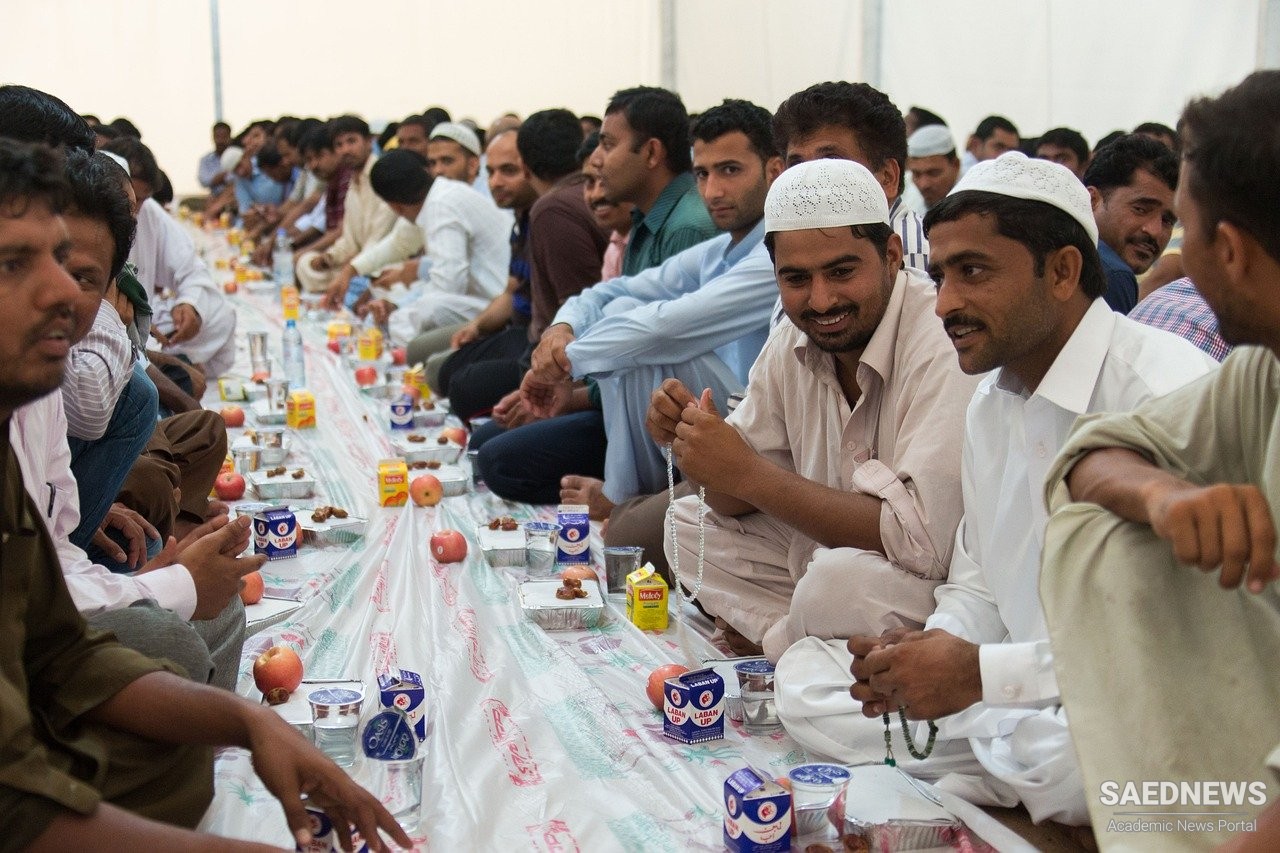The new moon’s crescent announces the end of Ramadan and the celebration of Eid al-Fitr, the holiday of fastbreaking. During Ramadan, Muslims wake to eat a pre- dawn meal. In many societies, it is customary to break the fast at sunset with an odd number of dates and a glass of water or milk, as Muhammad and his Companions are said to have done. Iftar, or fast- breaking, meals are often social occasions, when family, neighbors, and friends gather to celebrate the release from the day’s restrictions. Fasting is thus both an individual obligation and a collective occasion; even Muslims who do not regularly pray or pay obligatory alms may keep the annual fast. When Tunisia’s president Habib Bourguiba appeared on television in Ramadan during the 1960s drinking orange juice during daytime, he scandalized not only the nation but the entire region. According to Islamic jurisprudence, all competent adult Muslims are expected to fast except for those who are ill or traveling. Pregnant or lactating women may fast or not, depending on their health, while menstruants are prohibited from fasting due to ritual impurity. All who miss days are required to make them up, except for the frail elderly and those who have permanent health conditions that make fasting impossible; if they can afford to do so, they should pay charity in lieu of fasting. Deliberate breaking of the fast without an excuse requires significant atonement; breaking the fast with sex is a more serious offense than ingestion of food or drink. Children are usually gradually introduced to fasting over a period of years as they approach puberty. In addition to the mandated fast of Ramadan, and optional fasts on days such as the Day of ‘Arafat, some Muslims undertake regular voluntary fasts as one element of their worship. A pattern of fasting one day on, one day off is sometimes said to be particularly meritorious, as it prevents the individual from simply becoming accustomed to that pattern of eating. Other pious figures, though, are reported to have fasted continuously for years. Fasting is meant to be a spiritual exercise as well as an act of physical discipline. Hunger and thirst remind Muslims to be grateful for God’s bounty and to be aware of those who are in need. Ideally, fasting should not only involve abstention from food and drink but also anger and careless speech.


 Dawn of Islam: From Ignorance to Knowledge
Dawn of Islam: From Ignorance to Knowledge














































